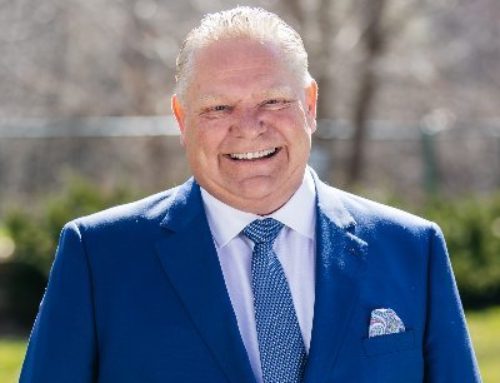You could have heard a pin drop on the first night of the United Alternative convention. Ralph Klein, the premier of Alberta and poster boy of fiscal conservatism, was at the podium delivering a workman-like speech to over 1,500 delegates and populist elites.
Democracy, he affirmed, is about choice. Conservatism is about being true to ourselves and our principles. And then he let the other shoe drop. “We cannot declare ourselves,” Klein argued, “to be the party of minimal interference in everyday life and then interfere in the most personal decisions.” Klein had come with a message: the state has no business in the bedrooms of the nation. The defining issues of our times, like the right to life, should be kept out of public discussion and left to the “internal moral compass” of Canadians.
The conference ended with a vote to create a new political party. But, for all the invective against Ottawa, “the place where your tax dollars come to die,” and Jean Chrétien’s fledgling Liberal dynasty, the United Alternative project seems to be destined to move in lock step with liberalism.
The seductiveness of liberalism lies in its three-fold promise of individual autonomy, the ghost in the machine of every party across the contemporary political spectrum. First, persons are freely choosing and independent selves. People are free to pursue their own conceptions of the good, consistent with a similar liberty for others. We owe no duties to others, including the most vulnerable members of our society, unless we have entered into some form of contract. The freedom liberalism promises is a radical freedom from each other.
Second, government must be neutral among competing moral and religious visions. In a diverse society, liberalism holds the state should not legislate morality. Instead, democracy requires us to bracket our moral convictions. Liberalism shuts down meaningful public discussion about difficult issues, and allows them to be decided in the back rooms of the nation. Invariably, it is the people with the most to loose – “mercy-killing” victim Tracy Latimer comes to mind – who are disenfranchised.
Third, there is no objective truth. Morality is a matter of opinion. Social justice and human meaning are in continuous flux. This was carried to its most breath-taking conclusion by the U.S. Supreme Court, which ruled in 1992 that to be human is to “define one’s own concept of existence, of meaning, of the universe, and of the mystery of human life.” In words not my own, liberalism is the euthanasia of making sense to each other. If every opinion is as true as the next, then all opinions are equally irrelevant. Promised the radical freedom to define our own reality, liberalism ensures no one could possibly take us seriously.
Taken together, these points were the operating principles at the United Alternative convention. But for all the references to history and high principle, no one realized that Canada was not built to operate this way. From its origins, Canada was not intended to turn a blind eye to our differences, but to build a nation out of them. The fathers of Confederation made special provision for religious freedom, convinced that an informed and courageous conscience was an asset, not a threat, to democracy.
The House of Commons was to be a forum for fierce and meaningful debate. It had the authority to make and break governments. In this way, Parliament would give teeth to diversity. It would secure peace, order, and good government by engaging the representatives of factious communities in serving the common good.
All of this has changed. Today, the prime minister and all party leaders dominate their caucuses. Party discipline and patronage ensure that power can be secured and efficiently maintained. The United Alternative convention was not about restoring Canadian parliamentary democracy as the fathers of Confederation created it. It was about consolidating the system of partisan politics, and tilting it to favour a specific variety of liberalism.
A small victory was gained on the convention floor with the resolution that “all human beings possess the fundamental human rights of life, freedom.” But this did not restore the parliamentary forum where such rights could be meaningfully applied. In their aim to forge a united alternative to the Liberal Party of Canada, Reformers and Conservatives failed to find an alternative to liberalism.
Wrapping themselves in the mantle of John A. MacDonald, they laid aside the volatile, ruthless, and just system of representative government that made him a parliamentarian and not a pretender.




